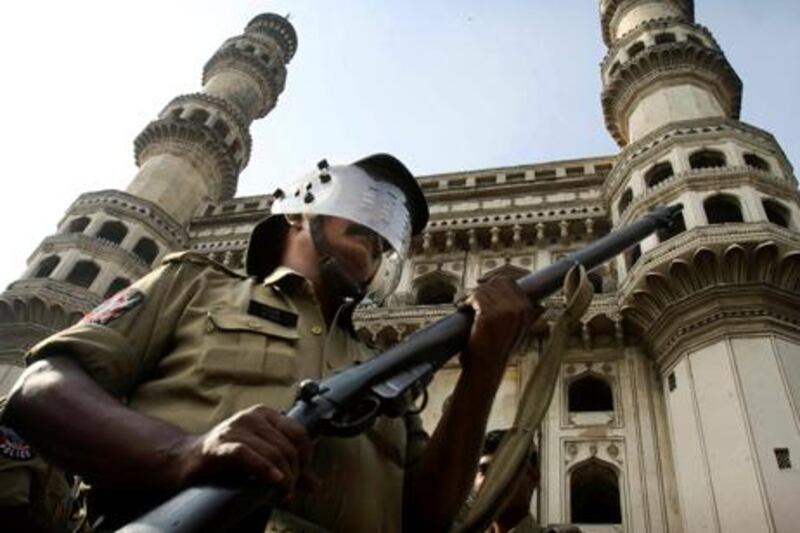NEW DELHI // A court has ruled that the site of a demolished 16th century mosque in Ayodhya, northern India would be divided between Hindus and Muslims, both television and a Hindu lawyer said today.
The demolition of the 16th century mosque by Hindu mobs in 1992 triggered some of India's worst riots that killed about 2,000 people. More than 200,000 police have fanned out in India on Thursday to guard against any communal violence.
The television reports have not been confirmed by the court in the northern state of Uttar Pradesh.
Local television said it was a 2-1 majority verdict, giving two thirds of the land to Hindus and one third to Muslims.
If confirmed, it could help appease both sides in one of the most divisive court cases in india's history.
Ravi Shankar Prasad, lawyer for a Hindu petitioner, told reporters: "The majority of the bench has ruled that the place where Lord Rama is enthroned, that is the birthplace of Rama."
Hindus wants to build a temple on the site. Muslims want the mosque rebuilt after it was demolished in 1992.
The verdict is almost certain to be challenged in the Supreme Court and a final decision could take years.
From the capital, New Delhi, to the financial hub, Mumbai ,and the towns of the northern Hindu "cow belt" along the holy Ganges river, many Indians had waited with apprehension on the verdict, some staying at home and stocking up with food in anticipation of rioting.
India's prime minister, Manmohan Singh, has called the verdict one of the country's biggest security challenges, and it comes at an already tense time when India worries about its international image days before the Commonwealth Games start in New Delhi.
Commentators say the verdict is unlikely to spark widespread riots of the kind that hit Mumbai and other cities in 1992. Political parties have called for calm and there is little electoral headway to be made in egging on religious riots in post-economic reform India.
The verdict's outcome will be a barometer of whether a rapidly globalising India with a growing middle class and an interest in investor stability has shed some of the religious extremism that often marred its post-independence years.
The issue haunts the ruling Congress party, a left-of-centre group with secular roots, which will have to stand by a verdict that is likely to upset one or other major voter bloc.
Reuters





